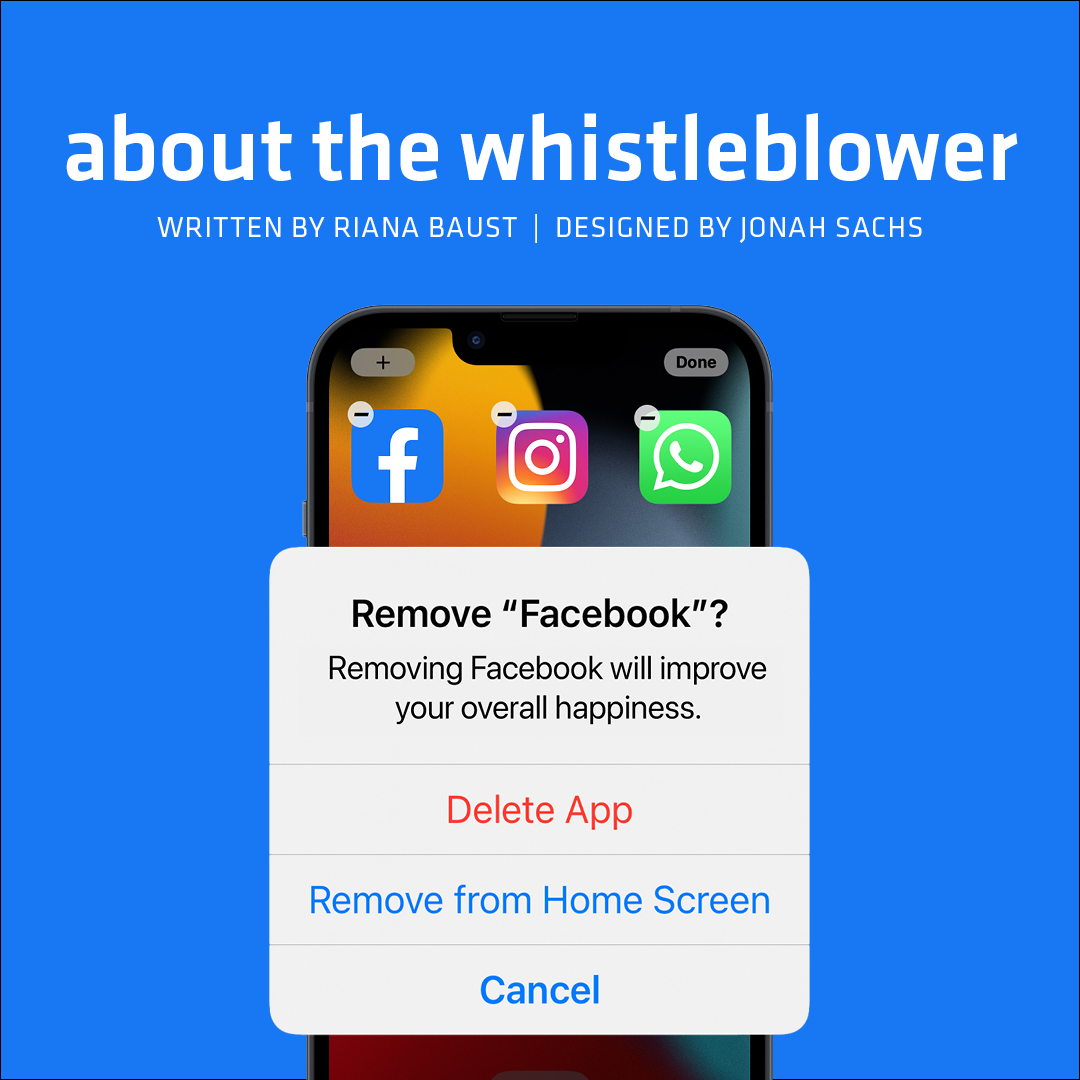
Former Facebook data scientist Frances Haugen has become the front runner in exposing Facebooks’ capitalistic nature. Haugen is also known as the “the whistleblower” — which is someone who exposes information on an organization — who stated that Facebook undermines the democracy of its platform for the sake of profit and growth. Prior to the accusations, Haugen spent two years studying algorithms and tracking advertisements for the company. During her final days, she stole thousands of confidential documents with the intention of sharing them with The Wall Street Journal.
Profiting Off of Teen Insecurity
A major argument in the materialistic agenda of Facebook is its disregard for the health of its underage users. Haugen states Facebook puts profit above the mental health of its adolescent users. For example, one study showed 13.5% of U.K. teen girls accusing Instagram of being a reason for their suicidal thoughts. Another 17% of teen girls claimed Instagram was a reason for their eating disorders. Since Haugen came forward with her accusations, other influential figures like Senator Marsha Blackburn came forward about the addictive quality of these platforms for children under the age of 13. Subcommittee Chair Richard Blumenthal emphasized this as he stated Facebook exploits teens’ insecurities like body dysmorphia, which leads to higher rates of depression and anxiety.
Democrats and Republicans
An important point Senator Richard Blumenthal made during the hearing is regardless of which political party you support, everyone has been affected by either Instagram or Facebook. It seems both Democrats and Republicans are putting their differences aside to hold the platform accountable for the misinformation and lies spread. Another toxic trait in its development is the design of its algorithm which alters users’ main feeds. When a particular post gets more engagement through likes, comments, or other types of interactions, it is put at the top of peoples’ feed so that it is the first thing they see when scrolling through their social media. This type of format can promote hate-speech, misinformation, violence, and graphic images to spread more quickly to users. Two proposals for addressing this problem are allowing citizens to sue social companies like Facebook for their algorithms and passing a national privacy law for protecting adolescents on the internet.
Human Trafficking
Haugen has cultivated a legal team that is closely reviewing Facebook’s past public statements about problems with its platform. So far the team has filed eight complaints with the Securities & Exchange Commission with some involving human trafficking allegations and the little effort Facebook actually makes in eliminating hate speech. Another interesting document that Facebook hid is its participation in human exploitation. An investigator discovered through the multiple platforms Facebook owns like WhatsApp, Messenger, and Instagram, that they are all involved in the stages of trafficking: recruitment, the grooming process, facilitation, the submission of the victim, and exploitation.
Ethnic Violence
A major problem in Facebook is its ignorance of foreign languages and translations. The platform does not account for the reading capabilities of users in different countries nor differing dialects. The inability for Facebook to detect hate speech in different languages juxtaposes its agenda for creating a safe and friendly community. One example includes multiple posts comparing Muslims to pigs and dogs and claiming the Quran allows rape of family members. The lack of censorship in this situation has only created more division between the already divided community of Hindus and Muslims. This problem exists merely because Facebook has a lack of classifiers for Hindi and Bengali.
Where It All Began
Initially starting as a way for Harvard students to connect around campus, Facebook was once a way of connecting with friends and family and sharing parts of your life. As a kid in the late 2000s, Facebook was extremely popular among my older step-sisters with trends like relationship statuses and commenting on people’s timeline. It is a shame to see the true colors of a platform loved by so many years later. Today, it has turned into a marketplace for some of the most dangerous acts of the internet for predators and black market activities.